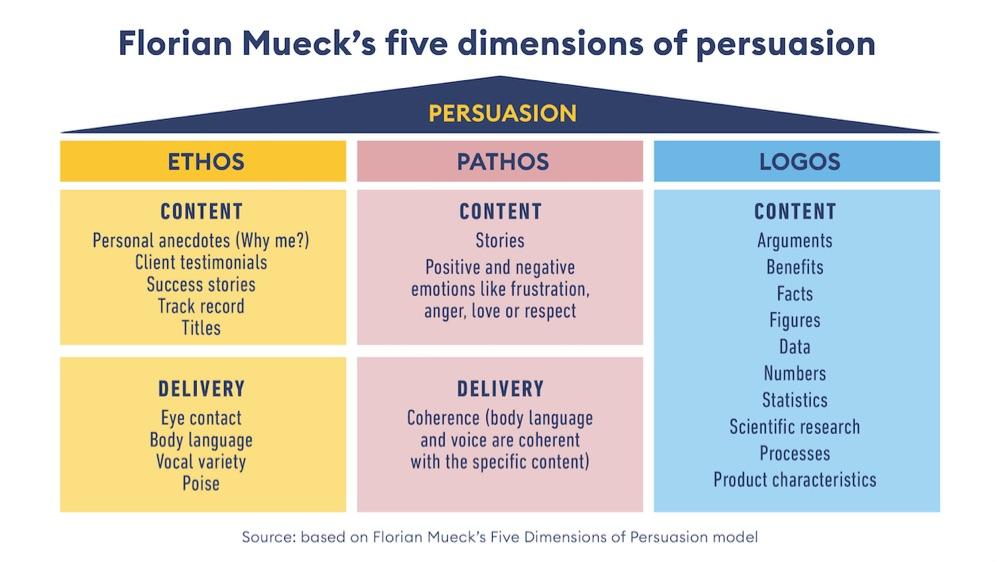Florian Mueck’s 5 Dimensions Of Persuasion
So far, so good. But when it comes to creating and delivering a presentation ourselves, it’s useful to think about how these classic modes of persuasion might be used in practice.
Author and consultant Florian Mueck suggests that we look at the three modes in a slightly different way to help us make sense of what they mean. For Mueck, Aristotle’s three modes break down into five dimensions, with logos being exclusively content-driven, but ethos and pathos having two dimensions: a content and a delivery side.
That means that we need to be aware not just of what we say but also of how we say it.
165
897 reads
CURATED FROM
IDEAS CURATED BY
On presenting, appealing, persuading, influencing and communicating, and on seeing presentations as an ebb and flow caused by our own gravity, a tide under our control and to our service, not the other way around.
“
The idea is part of this collection:
Learn more about psychology with this collection
How to challenge assumptions
How to generate new ideas
How to break out of traditional thinking patterns
Related collections
Similar ideas to Florian Mueck’s 5 Dimensions Of Persuasion
Aristotle’s 3 Modes Of Persuasion
Aristotle’s three “modes of persuasion, furnished by the spoken word” – ethos, pathos and logos – offer a practical framework that can set us on the path to presenting success.
- Ethos depends on the personal character of the speaker – what we bring th...
The art of presenting ideas
Aristotle’s distinction between three aspects of rhetoric:
- Your logos or logic: your reasons, the facts of the matter as you see them.
- Your pathos or emotional appeals to listeners.
- Your ethos, your identity or posture
History Of The Metaverse
In the 1992 sci-fi classic, Snow Crash, author Neil Stephenson describes a virtual-reality-based successor to the internet. The 2011 novel Ready Player One popularised the concept where you can do anything, be anyone, and go anywhere regardless of real-life circumstances.
Computers, the in...
Read & Learn
20x Faster
without
deepstash
with
deepstash
with
deepstash
Personalized microlearning
—
100+ Learning Journeys
—
Access to 200,000+ ideas
—
Access to the mobile app
—
Unlimited idea saving
—
—
Unlimited history
—
—
Unlimited listening to ideas
—
—
Downloading & offline access
—
—
Supercharge your mind with one idea per day
Enter your email and spend 1 minute every day to learn something new.
I agree to receive email updates

